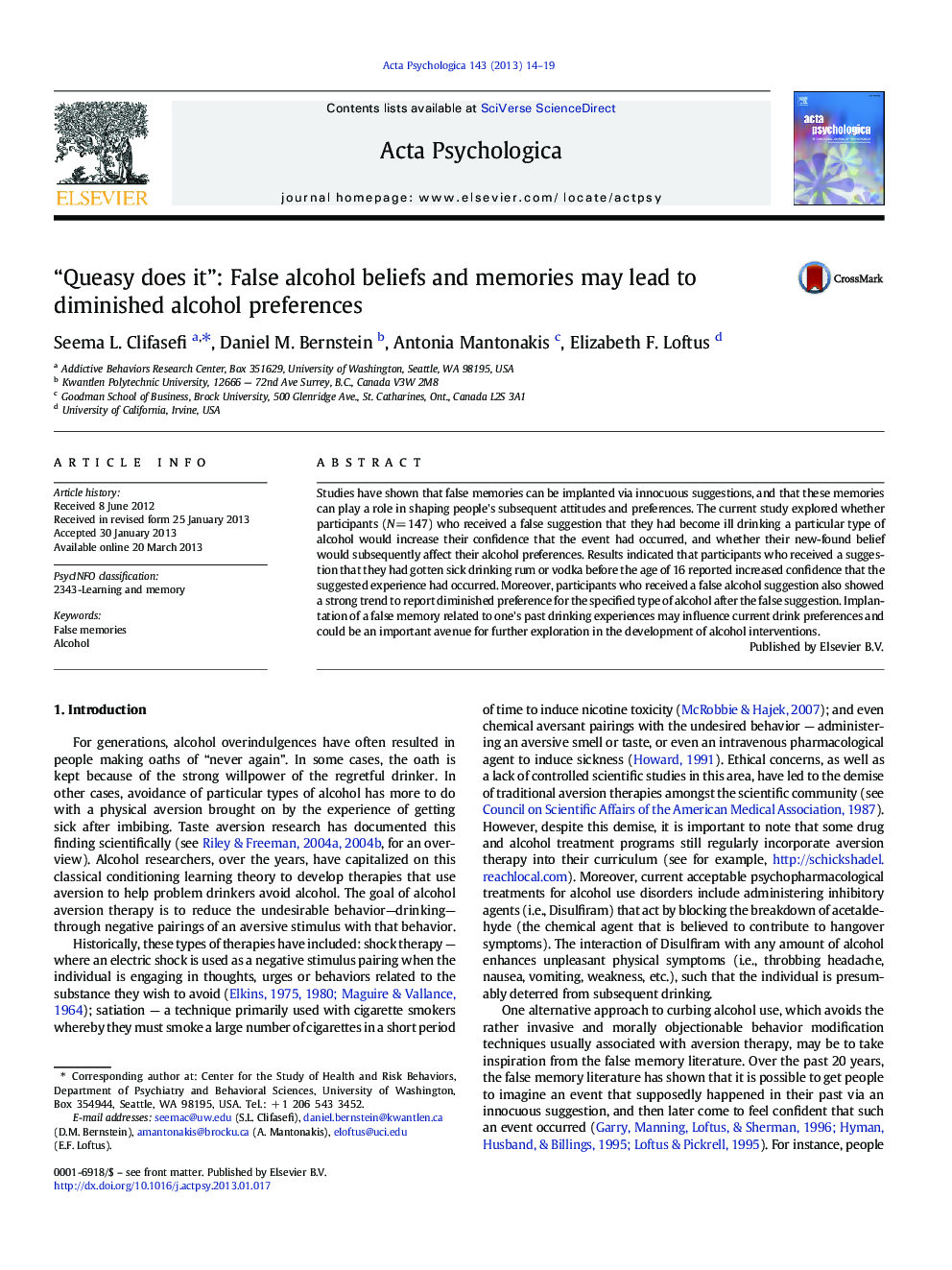| Article ID | Journal | Published Year | Pages | File Type |
|---|---|---|---|---|
| 919859 | Acta Psychologica | 2013 | 6 Pages |
Studies have shown that false memories can be implanted via innocuous suggestions, and that these memories can play a role in shaping people's subsequent attitudes and preferences. The current study explored whether participants (N = 147) who received a false suggestion that they had become ill drinking a particular type of alcohol would increase their confidence that the event had occurred, and whether their new-found belief would subsequently affect their alcohol preferences. Results indicated that participants who received a suggestion that they had gotten sick drinking rum or vodka before the age of 16 reported increased confidence that the suggested experience had occurred. Moreover, participants who received a false alcohol suggestion also showed a strong trend to report diminished preference for the specified type of alcohol after the false suggestion. Implantation of a false memory related to one's past drinking experiences may influence current drink preferences and could be an important avenue for further exploration in the development of alcohol interventions.
► False alcohol suggestions increased confidence in a fictitious drinking episode. ► False alcohol suggestions about one's past diminished current alcohol preferences. ► False memory techniques may play a role in shaping future alcohol interventions.
